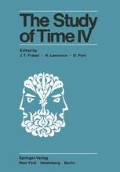Abstract
We have all heard it said that “music is a universal language.” What is meant by this statement is not that any music is universal, but that western classical music is universal. The distress and awkwardness of a music-loving, educated Indian at a symphony concert is matched only by the discomfort of an intelligent American at a Chinese opera performance. Musical events are profoundly culture-bound. Given enough time, one can come to appreciate the arts of an alien culture (partly by superimposing one’s own set of values and aesthetics upon the listening act), but one cannot be taught to hear music as someone from another cultures hears it. Too much cultural background, too many unstated, often unstateable presuppositions are embedded within the situation of music making and music hearing. Listening to a musical events from another culture is the same kind of act as reading a poem from another culture. One may comprehend all the words (notes) and yet somehow miss the meaning. Because cross-cultural understanding is ultimately impossible does not mean that one should not try. This paper is such an attempt, an effort to briefly sketch out a few of the many underlying assumptions which provide the cognitive context, the source of richness of meaning for a performance of Javanese gamelian music.
“Music is not only an art that employs or occupies time: I suggest that music is also a model of time and that the rhythm of music gradually comes to reflect cultural ideas on the nature of time.”1
—Lewis Rowell
Access this chapter
Tax calculation will be finalised at checkout
Purchases are for personal use only
Preview
Unable to display preview. Download preview PDF.
References
Lewis Rowell, “Time in the Musical Consciousness of Old High Civilizations—East and West,” in The Study of Time III, eds. J.T. Fraser, N. Lawrence, and D. Park, (New York: Springer-Verlag, 1978), p. 578 ff.
Ernst Bloch, “Symbols, Song, Dance and Features of Articulation,” Archive of European Sociology, 15 (1974): 71.
W.E.H. Stanner, “The Dreaming,” in Cultures of the Pacific, eds. T.G. Harding and B.J. Wallace (New York: The Free Press, 1970), p. 304.
Heinrich Zimmer, Myths and Symbols in Indian Art and Civilization, J. Campbell, Bollingen Series 6 (New York: Pantheon Books, 1953), p. 13.
C. Geertz, “Person, Time and Conduct in Bali,” in The Interpretation of Cultures, (New York: Basic Books, Inc., 1973), pp. 374–375.
Becker, J., “Time and Tune in Java,” InThe Imagination of Reality: Essays in Southeast Asian Coherence Systems, eds. A. Yengoyan and A.L. Becker (Norwood, N.J.: Albex Publishing Corp., 1979), pp. 197–210.
Editor information
Editors and Affiliations
Rights and permissions
Copyright information
© 1981 Springer-Verlag New York, Inc.
About this chapter
Cite this chapter
Becker, J. (1981). Hindu-Buddhist Time in Javanese Gamelan Music. In: Fraser, J.T., Lawrence, N., Park, D. (eds) The Study of Time IV. Springer, New York, NY. https://doi.org/10.1007/978-1-4612-5947-3_13
Download citation
DOI: https://doi.org/10.1007/978-1-4612-5947-3_13
Publisher Name: Springer, New York, NY
Print ISBN: 978-1-4612-5949-7
Online ISBN: 978-1-4612-5947-3
eBook Packages: Springer Book Archive

